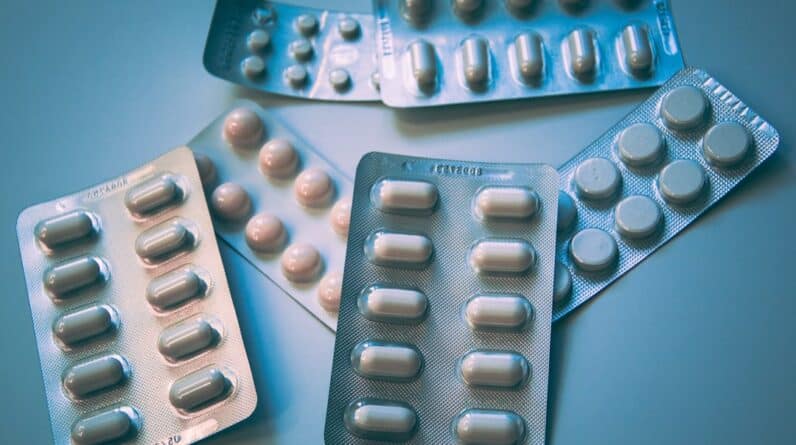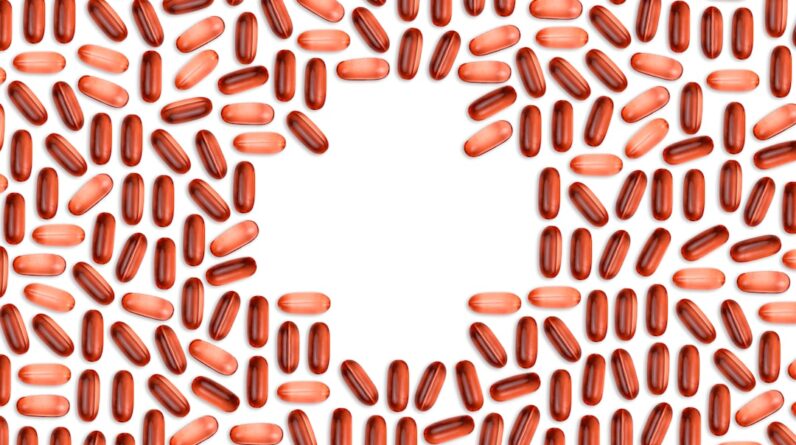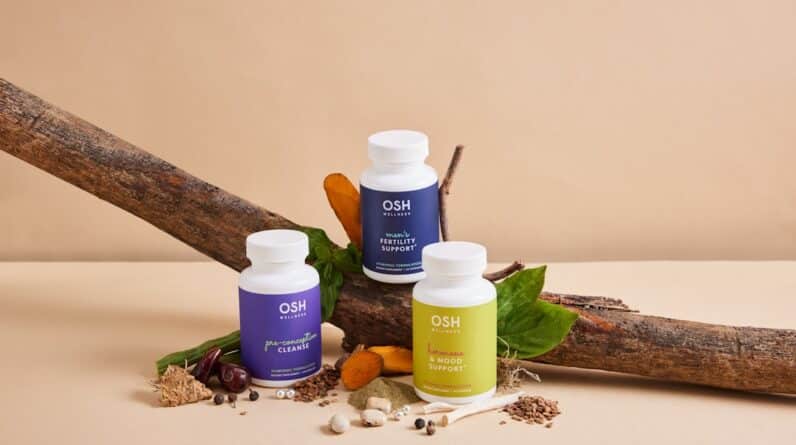Vitamin B2, commonly known as riboflavin, is a water-soluble vitamin that plays a crucial role in your body’s energy production and overall metabolic processes. As part of the B-vitamin complex, riboflavin is essential for converting carbohydrates, fats, and proteins into energy, which is vital for your daily functioning. This vitamin is also involved in the maintenance of healthy skin, eyes, and nerve functions.
Unlike some vitamins that can be stored in the body, riboflavin must be consumed regularly through diet or supplements, as your body does not retain it for long periods. Riboflavin is easily recognizable by its bright yellow color, which is often seen in supplements and fortified foods. It is naturally present in various foods, making it accessible for most people.
However, understanding its role and importance can help you appreciate why maintaining adequate levels of riboflavin is essential for your health. This vitamin not only supports energy production but also acts as an antioxidant, helping to combat oxidative stress in your body.
Key Takeaways
- Vitamin B2-Riboflavin is a water-soluble vitamin that plays a key role in energy production and metabolism.
- Benefits of Vitamin B2-Riboflavin include supporting healthy skin, eyes, and nervous system, as well as aiding in the production of red blood cells.
- Signs of Vitamin B2-Riboflavin deficiency may include cracked lips, sore throat, and anemia.
- Sources of Vitamin B2-Riboflavin include dairy products, lean meats, and green leafy vegetables.
- When choosing the best Vitamin B2-Riboflavin supplement, look for a reputable brand with third-party testing for quality and purity.
Benefits of Vitamin B2-Riboflavin
The benefits of vitamin B2 extend far beyond energy production. One of the most significant advantages of riboflavin is its role in promoting healthy skin and eyes. It helps maintain the integrity of your skin by supporting cellular repair and regeneration.
Additionally, riboflavin is known to reduce the risk of cataracts and other eye-related issues by protecting the cornea and lens from oxidative damage. By ensuring you have sufficient riboflavin in your diet, you can contribute to maintaining your vision and skin health. Moreover, riboflavin plays a vital role in the production of red blood cells.
These cells are responsible for transporting oxygen throughout your body, which is essential for overall vitality and energy levels. A deficiency in riboflavin can lead to anemia, resulting in fatigue and weakness. By ensuring you get enough vitamin B2, you can support your body’s ability to produce healthy red blood cells, thereby enhancing your overall energy and well-being.
Signs of Vitamin B2-Riboflavin Deficiency

Recognizing the signs of riboflavin deficiency is crucial for maintaining your health. One of the first symptoms you might notice is a sore throat or inflammation of the lining of your mouth and tongue. This condition, known as angular stomatitis, can cause discomfort and make eating difficult.
You may also experience cracks or sores at the corners of your mouth, which can be both painful and unsightly. In addition to oral symptoms, a deficiency in riboflavin can lead to skin issues such as seborrheic dermatitis, characterized by oily, flaky patches on the scalp and face. You might also notice increased sensitivity to light or blurred vision due to the impact of riboflavin on eye health.
If you experience any of these symptoms, it may be worth evaluating your dietary intake of riboflavin or considering supplementation to restore balance.
Sources of Vitamin B2-Riboflavin
Incorporating riboflavin-rich foods into your diet is an effective way to ensure you meet your daily requirements. Dairy products such as milk, yogurt, and cheese are excellent sources of vitamin B2. If you enjoy these foods, they can easily contribute to your overall intake.
Additionally, eggs are another fantastic source; they not only provide riboflavin but also offer high-quality protein and other essential nutrients. For those who prefer plant-based options, there are plenty of alternatives available. Leafy green vegetables like spinach and kale are rich in riboflavin, as are nuts and seeds.
Whole grains such as oats and quinoa also contain this vital vitamin. By diversifying your diet with these foods, you can easily achieve adequate levels of riboflavin while enjoying a variety of flavors and textures.
Choosing the Best Vitamin B2-Riboflavin Supplement
When it comes to selecting a riboflavin supplement, there are several factors to consider to ensure you choose the best option for your needs. First and foremost, look for a reputable brand that adheres to high manufacturing standards. Reading reviews and checking for third-party testing can provide insight into the quality and efficacy of the product.
Additionally, consider whether you prefer a standalone riboflavin supplement or one that is part of a broader B-complex formula. Another important aspect to evaluate is the dosage. The recommended daily allowance (RDA) for riboflavin varies depending on age, gender, and life stage.
Make sure to choose a supplement that aligns with your specific needs without exceeding safe limits. If you have any underlying health conditions or are taking other medications, consulting with a healthcare professional before starting any new supplement regimen is always a wise decision.
How to Take Vitamin B2-Riboflavin Supplement

Taking riboflavin supplements can be straightforward, but there are some best practices to keep in mind for optimal absorption and effectiveness. It’s generally recommended to take riboflavin with food to enhance its absorption in your body. This approach not only helps with digestion but also minimizes any potential gastrointestinal discomfort that may arise from taking supplements on an empty stomach.
Additionally, consider splitting your dosage throughout the day if you’re taking higher amounts. For instance, if your supplement suggests taking 100 mg daily, you might take 50 mg in the morning with breakfast and another 50 mg at lunch. This method can help maintain consistent levels of riboflavin in your bloodstream throughout the day, maximizing its benefits.
Potential Side Effects of Vitamin B2-Riboflavin Supplement
While riboflavin is generally considered safe and well-tolerated by most individuals, it’s essential to be aware of potential side effects that may arise from supplementation. In rare cases, some people may experience mild gastrointestinal issues such as diarrhea or nausea when taking high doses of riboflavin. If you notice any discomfort after starting a supplement regimen, it may be worth adjusting your dosage or consulting with a healthcare professional.
Another consideration is that riboflavin can cause bright yellow urine when taken in excess; this is harmless but can be surprising if you’re not expecting it. It’s important to remember that while riboflavin is water-soluble and excess amounts are typically excreted through urine, moderation is key to avoiding any unnecessary side effects.
The Importance of Vitamin B2-Riboflavin for Overall Health
In conclusion, vitamin B2-riboflavin plays an indispensable role in maintaining your overall health and well-being. From energy production to supporting skin and eye health, this essential nutrient contributes significantly to various bodily functions. By ensuring you consume adequate amounts through diet or supplementation, you can help prevent deficiency-related issues and promote optimal health.
As you navigate your dietary choices or consider supplementation options, remember that balance is crucial. Incorporating a variety of riboflavin-rich foods into your meals while being mindful of supplementation can help you achieve the best results for your health. Ultimately, prioritizing vitamin B2 will empower you to lead a more vibrant and energetic life.
If you are interested in learning more about industry news and trends in the health nutrition supplements market, check out the article here. This article provides valuable insights into the latest developments in the industry, including new product launches and emerging trends. It is a great resource for staying informed about the ever-evolving world of health supplements.
FAQs
What is Vitamin B2-Riboflavin?
Vitamin B2, also known as riboflavin, is a water-soluble vitamin that plays a key role in energy production and the metabolism of fats, drugs, and steroids in the body.
What are the benefits of Vitamin B2-Riboflavin?
Vitamin B2-Riboflavin helps in the production of red blood cells, supports healthy skin, eyes, and nerve function, and aids in the conversion of food into energy.
What are the food sources of Vitamin B2-Riboflavin?
Good food sources of Vitamin B2-Riboflavin include dairy products, lean meats, eggs, green leafy vegetables, and fortified cereals.
What are the symptoms of Vitamin B2-Riboflavin deficiency?
Symptoms of Vitamin B2-Riboflavin deficiency may include sore throat, redness and swelling of the lining of the mouth and throat, cracks or sores on the outsides of the lips, and anemia.
Who may benefit from a Vitamin B2-Riboflavin health supplement?
Individuals who may benefit from a Vitamin B2-Riboflavin health supplement include those with poor dietary intake, certain medical conditions, or those who have increased needs for this vitamin due to factors such as pregnancy or breastfeeding.
What are the potential side effects of taking Vitamin B2-Riboflavin supplements?
Vitamin B2-Riboflavin supplements are generally considered safe when taken as directed. However, high doses may cause the urine to become bright yellow. Always consult with a healthcare professional before starting any new supplement regimen.






